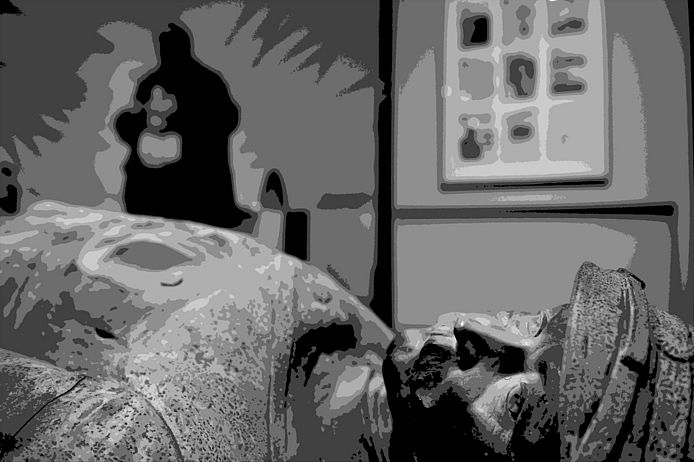Like many others in the Arab world, I grew up with the words of the reformist Islamic scholar and Egyptian anti-colonialist Mohamed Abdou ringing in my ears. "I saw Muslims without Islam," he wrote, summarising a trip to Europe in 1881, affirming that the continent was a place of prosperity, of the good life, of the "true, the beautiful, the good", a place of justice where one could be a "human being" - just as Abdou imagined the culmination of Islam. After the Orabi Uprising was put down in 1882, Egypt became a British colony.
The relationship between colonised and coloniser is disturbing, distressing and confusing for both sides, according to the Egyptian writer Radwa Ashour. Admiration was and still is part and parcel of this complex relationship as well. Admiration for the life that one wants to live but cannot achieve – often because of those who are able to live this very life. The complexity of this relationship also has to do with the complexity of the European Enlightenment. It developed important basic notions of freedom and equality as well as collective and individual self-determination, but it also has its downside. It is no coincidence that the age of Enlightenment was also the age of colonialism. Colonialism and its continuities right down to the present day have not only been based on naked violence. Power relations were and are still also propped up by ideology.
The British philosopher and pioneer of Enlightenment John Locke, for example, developed a theory to justify slavery, while he himself owned shares in companies involved in the slave trade. He was no exception: colonialism as a whole borrowed Enlightenment notions of modernity, progress and civilisation (as understood by Europeans), with the task being to spread these throughout the world. This in turn took place on the heels of violence and exploitation.
"Between 1765 and 1938, Great Britain siphoned off the equivalent of around 45 trillion dollars from India alone." The Indian economist Utsa Patnaik has estimated that today "this sum would amount to 17 times the annual gross domestic product of Great Britain". This vast wealth not only flowed to Great Britain itself, but also trickled down throughout Europe, North America and other settler colonies in the course of industrialisation. This can be seen as one of the roots of the West's economic dominance. While formal colonisation has largely come to an end, dominance at the economic and political levels has remained. Until now.
Offers instead of demands
Europe's hegemony has been defended and consolidated. But it is crumbling. Europe is no longer at the centre of the world economically speaking, and it is losing political influence. According to Rainer Dulger, President of the German Employers' Organisation: "The EU market is losing significance with each passing day. We are no longer as attractive as we think we are and we are no longer as good as we think we are." The balance of economic power is shifting eastwards, particularly towards China. Many observers are predicting an economic division of the world into an Eastern and Western bloc, with the Western bloc suffering a loss of prosperity. But the West is not a homogeneous bloc, either. According to Gideon Rachman, chief foreign affairs columnist at the Financial Times, Europe is losing out to the USA in the science, industry and energy sectors.
Europe's political significance is also dwindling. This is not only due to the fact that other powers are becoming stronger and gaining greater clout. It is also due to changes in the self-image of the former colonies on which Europe previously relied. While African heads of state regularly travel to Beijing, New Delhi, Doha and Riyadh for talks, Europe has to struggle to convince Africa as be a "strategic partner". Instead of being confronted with the usual demands and exhortations, Africa is now being made offers. This opens up latitude and room for manoeuvre for those being wooed. They can choose whether a new railway line is to be built by Chinese, European or Japanese companies. "Don't call us - we'll call you." These changes do not go so far as to mean that we are now on an equal footing and that decolonisation has finally been achieved. For the African countries, this means nothing more, but also nothing less, than a better position in a game that remains stacked against them.
On top of an erosion of economic significance, Europe is also weak within. The crisis of liberalism and the rapid shift to the right are seen outside the continent as a form of imperial arrogance: European discourses are no longer able to connect, they only revolve around Europe, anyway. In increasingly narrowing discursive and political spaces, voices from outside are only allowed to be heard as examples of predetermined positions of "the others" and are to be discredited if need be. There is no debate in which "the other voice" could be a genuine counterpart worthy of receiving empathy in order to understand the world through others' eyes. The rest of the world is turning away from Europe not least due to the obvious contradictions between European moral and human rights rhetoric on the one hand and actual European actions on the other. Whether in the coronavirus pandemic, in climate or migration policy, silence in the presence of certain human rights violations and war crimes, but outrage over others – there is a huge gulf to be seen everywhere: Some lives matter more than others, and only some are worth saving.
For a lengthy period, Europe seemed to be the main beneficiary of advancing globalisation. It is now becoming evident that "globalisation" is also challenging and affecting Europe. This is becoming clear in the climate crisis, in which Europe has involuntarily become part of a world that is suffering, inundated by floods or burning up; a vulnerable world. While crises could previously at least be more or less managed within traditional structures, the ongoing climate disaster brings with it a feeling of powerlessness. This in turn is producing three reactions: aid, violence and absurdity.
Aid, violence and absurdity
Regarding aid. Aid, especially development aid, has often served as a substitute for political and economic change. Aid as a bandage that has long since been unable to cover up the suffering. In view of the increasingly destructive nature of the crisis, this impotence of aid can no longer be concealed. Moreover, in the changing global constellation, it is no longer as effective an instrument of power as it once was. It is no coincidence that calls for the decolonisation of development cooperation and aid have arrived in the mainstream. Violence is a reaction to powerlessness in the face of the climate disaster. Those who can no longer or no longer want to be helped – the damned of this earth from forgotten places of desolation – are to be kept away and kept out by any and all means, if necessary through violent means. The absurdity lingers. One of the tender buds in the midst of it all: the world climate summit, COP 28, is being held in the United Arab Emirates, one of the world's largest oil producers, and is to be chaired by the head of the national oil company.
"Almost all established states say they want to work for a fairer world order. But in reality, they are all pulling up the drawbridges," is how Richard Gowan from the International Crisis Group at the United Nations. puts it. Efforts to deal with the climate disaster are directly rooted in the dark side of the Enlightenment. The European Green Deal, in the words of the European Council for Foreign Relations, is above all a foreign policy agenda with the aim of "achieving climate neutrality by 2050 and turning the transition into an economic and industrial opportunity for Europe". The environmental and human costs of this deal – especially, but not only, outside Europe – are irrelevant. Just as industrialisation was once a logical path forward for the countries concerned, although it imposed costs on the colonised, enslaved and exploited people in the Global South, so too do the Green Deals of today make good sense: while the rich countries green themselves, they export the toxic parts of production. Europe has decided to recycle the same old story. The difference is that the world is no longer forced to listen or fall in line.
Missed opportunities
Just as the West's handling of the coronavirus pandemic constituted a missed opportunity, the looming climate disaster could also offer opportunities. Floods caused by extreme rainfall in the Ahr valley, in Austria and Greece as well as in Pakistan and Libya, droughts in France and Spain as well as in Kenya: such events have offered fertile ground for the cultivation of solidarity. Not disguised as charity, but in reality as a continued imperial form of Europe saving the world, but instead as a part, as a member of the world.
Becoming a member of the world again would mean joining the world in a way that can make a good life possible for everyone and everything. It would mean not turning the disaster into an "economic and industrial opportunity for Europe". It would mean continuing the stories of people who have supported each other, who have distributed food, who have pumped water out their cellars together, who have helped to clear rubble. Whether in Ahrweiler, Lagos, Darna, Volos or Zhengzhou.
There is an element that directly connects these locations: the silt that remains after every flood. The Martinican thinker Édouard Glissant turns the washed-up mud, the sediment of seemingly dead elements and lost things, into the central figure of thought. Especially in desolate, abandoned and silent places, this residue summons forth new forms of life and work through an unexpected transformation into fertiliser. The possibility of making our world resilient for the future, Glissant argues, must be tapped into from the underside of our history – and based the acknowledgement that slavery and the "cannibalism" of colonial powers were among the phenomena giving rise to Western-dominated modernity. The modern world that emerged from these structures and is still captive within them is built on countless human bones. It is made up of debris and stumps, of scattered and pieced-together scraps of victims' words.
The survival of humanity hinges on revitalising a humaneness that has atrophied: We do not need any more unjust economic agreements, no more of a world order based on violence and double standards. Instead we must leverage the "reservoirs of life", as Glissant calls for: we must seek out and find those actors, concepts, means and words with which the world can become a good place for everyone and everything.



